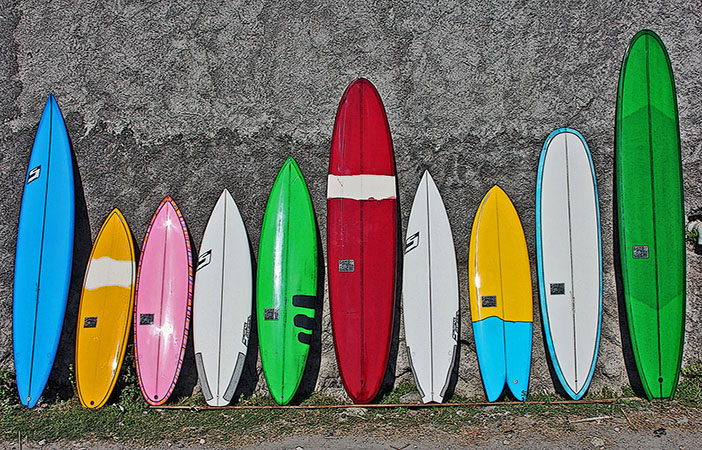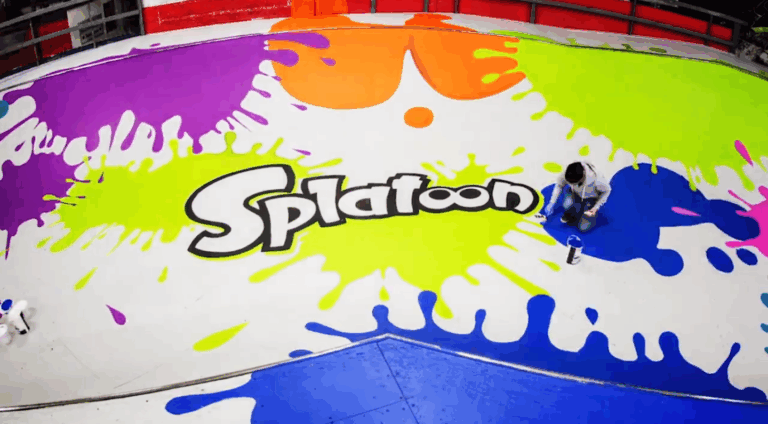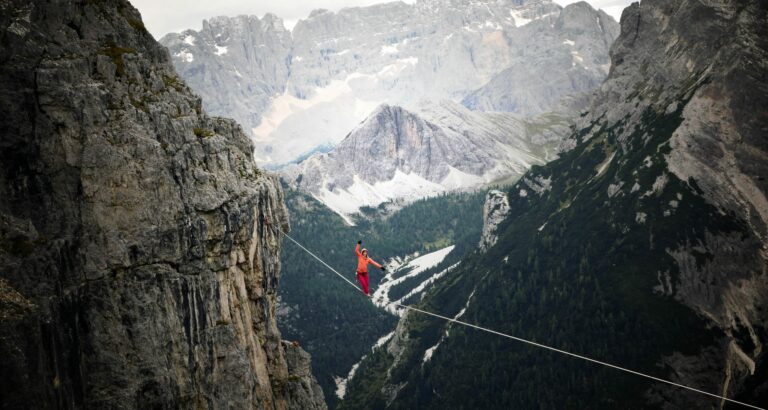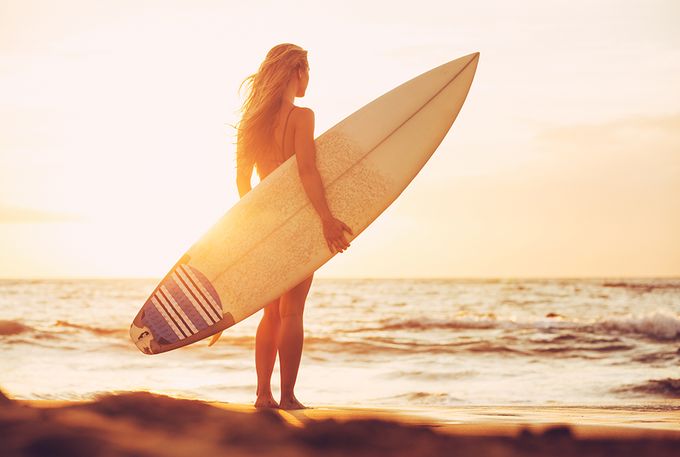
Want to take up surfing but don’t know where to begin?
Surfing for beginners might look super hard, but it’s not as hard as it looks to get started as long as you know a few basic tips and pointers!
Whether you want to ride a longboard or a shortboard, we’ve got a wealth of advice on where to start.
You can find some of the best surf spots in the UK in Cornwall and Wales. If you fancy going somewhere more exotic on a surf holiday, Portugal, Sri Lanka and Bali are always an option.
From your first accessories, to the best lessons, we’ve got all the tips and advice you need to get you on the way from a beginner surfer to out there in the line up!
Best Surf Spots For Beginners
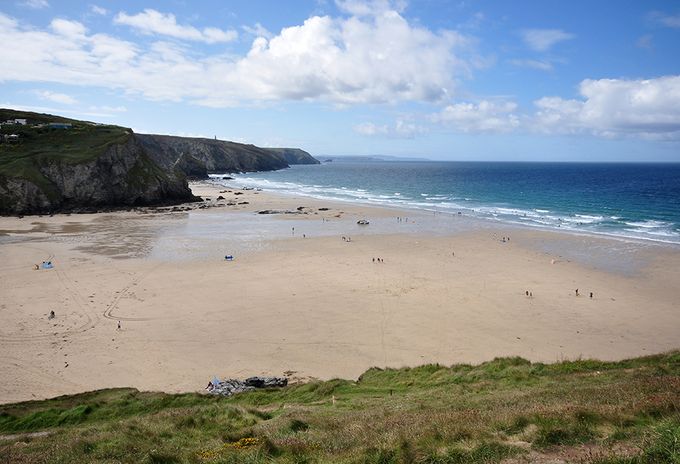
UK surf spots are not in short supply, with some great beaches in Cornwall and Wales, as well as around North Devon.
Head to Cornwall for some of the UK’s best known surf destinations. For beginners, beaches at Polzeath, Gwithian and Harlyn Bay are great for decent space and steady rips.
Check out some of the best surf schools in Cornwall, such as Surf’s Up Surf School in Polzeath and Gwithian Academy of Surfing.
Over in Wales, don’t let the promise of rain put you off. Whitesands in Pembrokeshire is one of the UK’s best beaches for clean breaks.
If you catch it on the right day, Oxwich Bay in Gower is a safe choice for beginners who want to build up there confidence.
Want to go further afield? Surf spots outside of the UK include the Algarve in Portugal or Morocco. They have some great beaches and often offer surf holidays for beginners (often including a spot of yoga!)
BUYING YOUR FIRST SURFBOARD
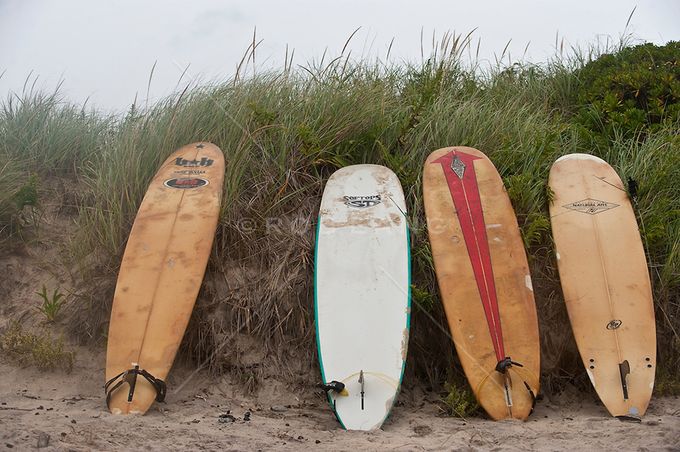
The question most beginner surfers ask when getting started is whether to get a shortboard or go bigger with a longboard.
When looking at surfboards for sale, there’s a good chance you’ll see a pretty equal mix of both, so which to go for?
Longboards are usually a wise choice for beginners. They have a more steady centre of balance due to their larger width and length and therefore tend to be easier to catch waves on when you’re first starting out.
On the other hand, many surfers chose to ride a shortboard from the very beginning, preferring the ease of controlling a smaller board in the water.
Head down to one of the UK’s best surf shops and rent a board for a few hours or a day. Try out a longboard first, but do give the shortboard a go as well, you never know what type of surfer you’ll turn out to be!
Buying Surf Equipment And What Wetsuit To Wear
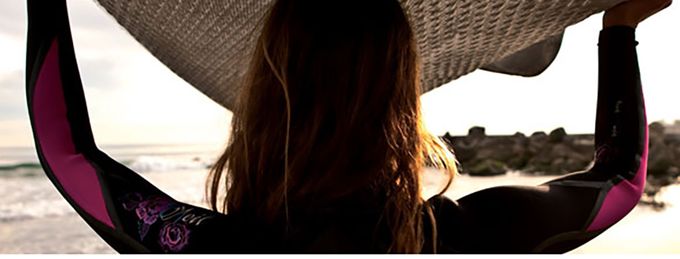
A common mistake lots of beginners tend to make is thinking that one wetsuits suits all.
In fact, there are a plethora of different styles, fits and types of wetsuits that you can choose between when buying surfing equipment.
The two most popular thicknesses for wetsuits in the UK are 3mm and 5mm, with many women choosing to buy a rash vest to wear underneath.
Long or short, thick or thin, your choice of wetsuit should be decided by the conditions you will be learning to surf in.
Once you found the perfect suit, there are surfing accessories that you might want to invest in also.
Surfing booties and hoods are less necessary on the scale of things, but will be handy in colder water, along with gloves.
You can always head out with just a suit and a board (and a leash!) but do look around to decide what surfing accessories you feel you will require as a beginner surfer.
Surfing Tips For Beginners
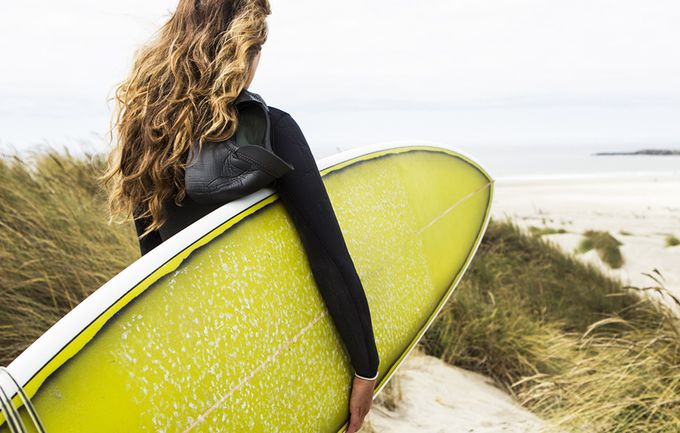
The first thing every beginner needs to master is the paddle out. This is where longboards are handy, providing you with more power to get through the whitewater and into the back.
You will make some silly faux pas, so once in the line up, its best to be aware of the surfers code of conduct.
Now all you need to practice your pop and you’re away! Once you’ve got steady on your board, there are a whole load of board sports such as wakeboarding and windsurfing to explore.
And remember! If you feel like your doing it wrong, remember that everyone out there is thinking the same things.



